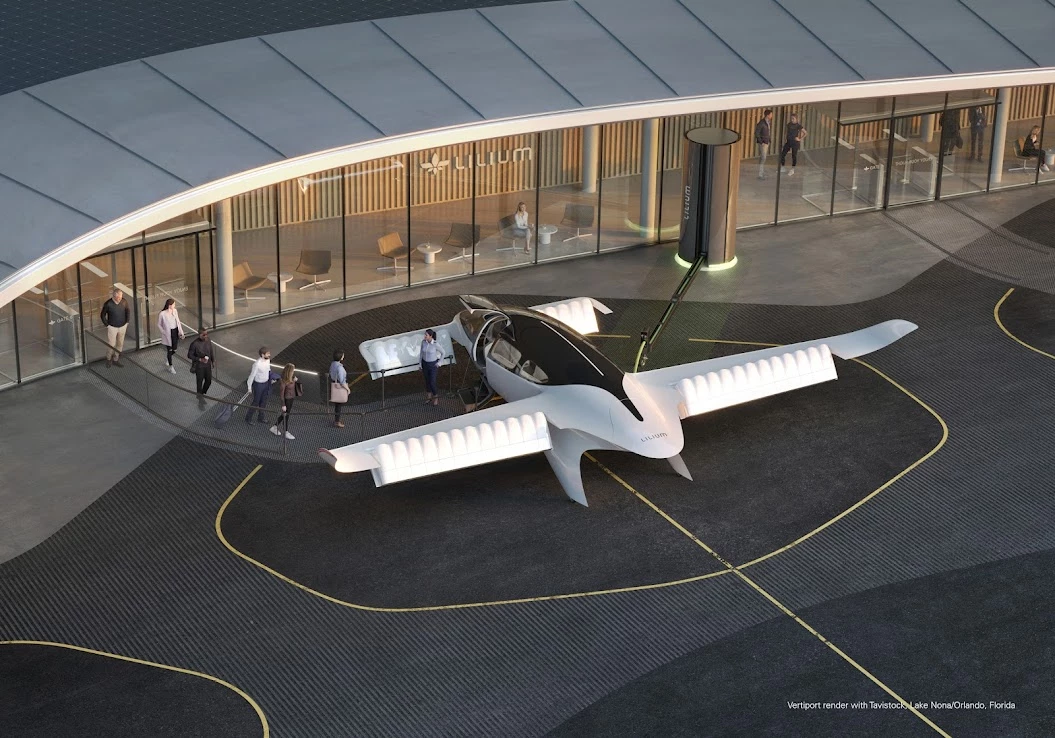Lilium's eVTOL is vastly different to anything else in the air taxi world, using 36 small ducted fans in place of larger open rotors. This has advantages and disadvantages, which we've discussed in detail before. Essentially, smaller fans make for vastly lower hover efficiency, but the company says they create less drag than large rotors in forward flight, improving efficiency over longer range flights.
Lilium also says they'll make these aircraft much easier to scale up to 15 seats and beyond without losing the ability to land on standard helipads.
And it also says that with cutting-edge acoustic treatment they should have a significantly lower noise signature than large-rotor competitors, which will make them much more friendly to people living under the flight path or close to a vertiport.
Now, the company has released a pair of videos showing its 5th-generation tech demonstrator prototype – an older 5-seat model first flown in 2019 – in flight with the sound included, one of which handily gives a measure of distance as the aircraft approaches. It's more a measure of the quality of the sound than the quantity; there's no decibel readout, and really nothing to compare the volume against. Take a look:
One thing is apparent: the Lilium jet will make a sound much higher in pitch than the Joby S4 – something you could've guessed since small fans will spin much faster to produce the same thrust with less swept area. Skip to the end of the video below for a listen to the Joby in a hover.
We wouldn't try to draw too much from the comparison here. The sound in the Joby video is likely taken from a highly directional mic pointed at JoeBen Bevirt, and it looks like it's been shot at a fairly high zoom, which would make the aircraft appear closer than the Lilium Jet looks in its wider-angle video.
And of course, both these aircraft are being remotely piloted with zero passenger load on board. Fill them up with meat and both will be louder.
Still, if these eVTOL air taxis are to flood our cities as promised, with super-fast, cheap air transport, their sound signature will be paramount to public acceptance. People won't tolerate them if they add an unpleasant level of noise pollution when they're near the ground. It's definitely an angle to keep your ear out for.
Check out another new Lilium video below, with some more sound.
Source: Lilium








